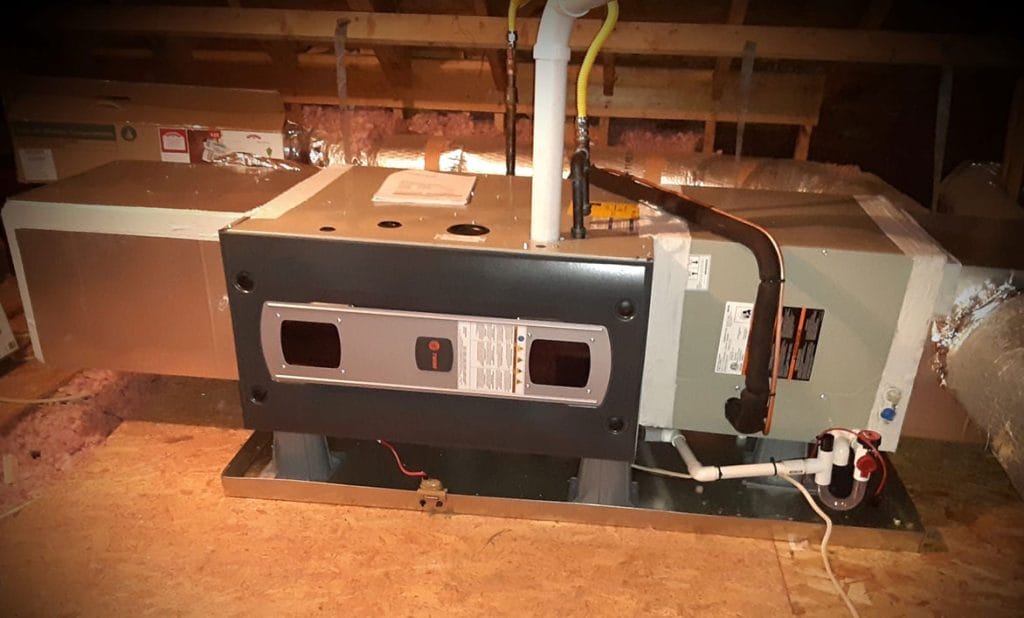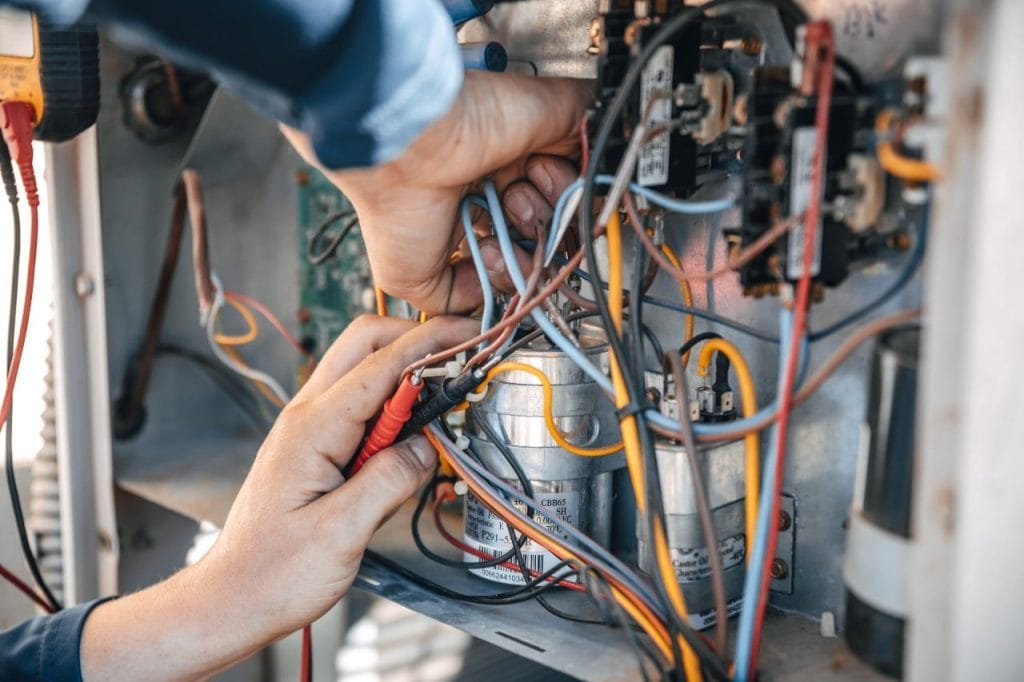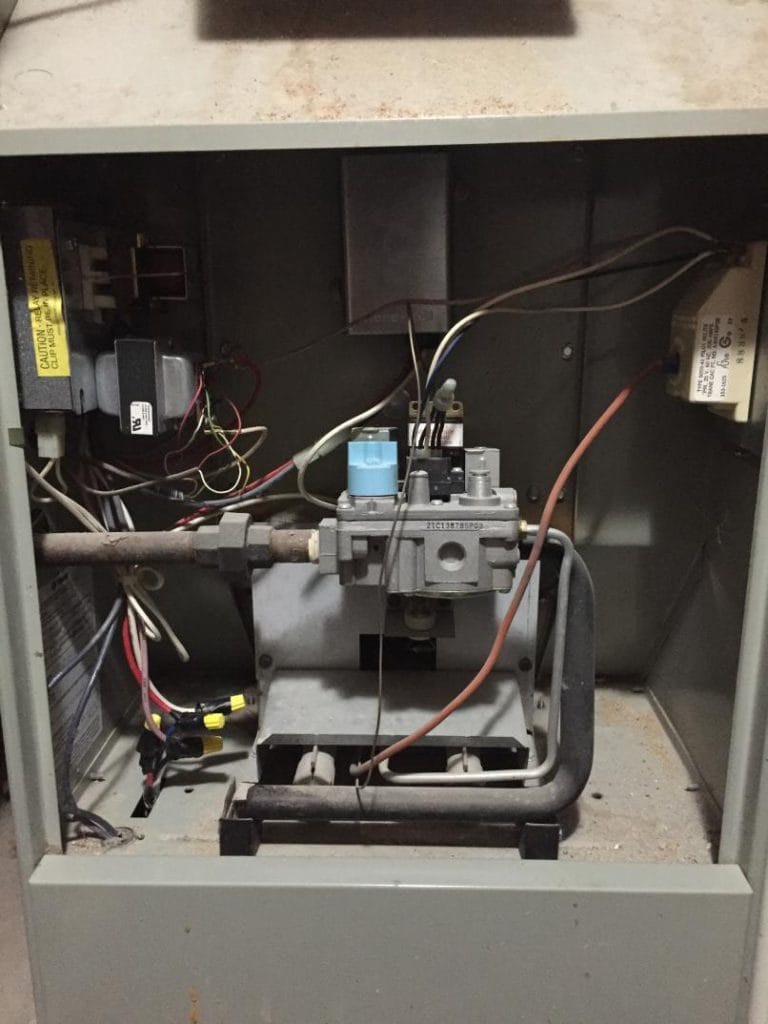In Denver, you will need to choose the right furnace replacement for your home. When it comes to keeping your Denver home warm during Colorado’s cold winters, choosing the right furnace replacement is essential. With so many options available—gas, electric, and high-efficiency furnaces—it can be challenging to know which one is best for your home and budget. The right furnace replacement will not only keep you comfortable but also help you save on energy costs for years to come. Here’s a detailed guide to help you make an informed decision.
1. Understand the Different Furnace Replacement Types
Gas Furnaces
- How They Work: Gas furnaces burn natural gas to produce heat, which is then distributed throughout your home via ductwork.
- Pros:
- Lower operating costs compared to electric furnaces, especially in areas where natural gas is affordable.
- Fast and efficient heating, even in extreme cold.
- Long lifespan when well-maintained (15–20+ years).
- Cons:
- Higher upfront installation costs.
- Requires access to a natural gas line.
- Produces carbon monoxide, so proper ventilation and maintenance are essential.
- Best For: Homeowners in Denver where natural gas is readily available and affordable.
Electric Furnaces
- How They Work: Electric furnaces use electric heating elements to generate heat, which is circulated through the home.
- Pros:
- Lower upfront costs compared to gas furnaces.
- Safer operation—no combustion or risk of carbon monoxide leaks.
- Ideal for homes without access to natural gas.
- Cons:
- Higher energy costs since electricity is often more expensive than natural gas.
- Less efficient in extremely cold climates, as they take longer to heat a home.
- Best For: Smaller homes, homes in areas without natural gas lines, or as a secondary heating option.
High-Efficiency Furnaces
- How They Work: High-efficiency furnaces (condensing furnaces) use advanced technology like a secondary heat exchanger to extract additional heat from exhaust gases. They typically have an AFUE (Annual Fuel Utilization Efficiency) rating of 90–98%.
- Pros:
- Lower energy bills due to significantly reduced energy waste.
- Environmentally friendly, as they consume less fuel.
- Quieter operation compared to older or standard-efficiency furnaces.
- Cons:
- Higher upfront costs for installation.
- May require additional components like venting upgrades.
- Best For: Homeowners looking for long-term savings, energy efficiency, and eco-friendly solutions.
2. Consider Key Factors When Choosing a Furnace Replacement
1. Size Matters: Furnace Replacement Capacity
The size of your furnace plays a crucial role in its performance. A furnace replacement that’s too small won’t heat your home adequately, while one that’s too large will short cycle, reducing efficiency and causing wear and tear.
- How to Determine the Right Size: HVAC professionals use a calculation called “Manual J Load Calculation” to determine the proper size for your home. Factors include square footage, insulation levels, window types, and climate.
- Pro Tip: For Denver homes, consider the area’s winter temperatures and insulation when determining furnace size.
2. Energy Efficiency
Furnace efficiency is measured using the AFUE rating:
- Standard Efficiency: 80–85% AFUE (20% of fuel is wasted).
- High Efficiency: 90–98% AFUE (only 2–10% fuel is wasted).
Higher efficiency furnace replacement cost more upfront but provide long-term savings by reducing energy costs. For Denver homeowners who use their furnaces extensively during winter, a high-efficiency unit may pay for itself over time.
3. Fuel Availability and Costs
- Natural Gas: Often the most economical choice in Colorado. If your home has access to a gas line, a gas furnace will typically provide the best balance of cost and performance.
- Electricity: Electric furnaces are ideal for homes without gas lines but come with higher operating costs.
- Propane or Oil: Less common in urban areas like Denver but may be used in rural homes.
4. Upfront Costs vs. Long-Term Savings
When choosing a furnace, weigh upfront installation costs against long-term savings:
- Gas Furnaces: Higher installation cost, lower operating costs.
- Electric Furnaces: Lower installation cost, higher energy costs.
- High-Efficiency Furnaces: Highest upfront cost, but substantial savings on energy bills over time.
5. Climate Considerations in Denver
Denver winters can be cold and snowy, which means your furnace needs to perform reliably. Gas furnaces or high-efficiency models are often preferred in colder climates because they provide powerful, consistent heat even during subzero temperatures.
3. Compare Costs and Benefits of Furnace Options
| Furnace Type | Upfront Cost | Energy Cost | Lifespan | Efficiency | Best For |
|---|---|---|---|---|---|
| Gas Furnace | Moderate | Low | 15–20+ years | 80–98% AFUE | Homes with gas access |
| Electric Furnace | Low | High | 15–25 years | 95–100% | Homes without gas lines |
| High-Efficiency | High | Very Low | 15–20+ years | 90–98% AFUE | Long-term energy savings |
4. Professional Installation and Sizing
A new furnace is only as good as its installation. Poor installation can lead to inefficiencies, safety issues, and higher operating costs. Always work with a licensed HVAC professional who can:
- Recommend the best furnace replacement based on your home’s needs.
- Perform a proper load calculation to size the furnace correctly.
- Ensure safe, compliant installation that meets local codes.
5. The Benefits of Upgrading Your Furnace
- Lower Energy Bills: Modern, efficient furnaces reduce waste and save you money.
- Improved Comfort: Consistent, even heating keeps your home cozy.
- Better Indoor Air Quality: New furnaces replacement often come with advanced filtration systems.
- Quieter Operation: Advanced technology reduces furnace noise.
- Higher Home Value: Energy-efficient upgrades increase resale appeal.
Work with Top Shelf Electric, Heating & Plumbing
Choosing the right furnace for your Denver home can seem overwhelming, but you don’t have to make the decision alone. At Top Shelf Electric, Heating, & Plumbing, our experienced HVAC technicians will assess your needs, budget, and home layout to recommend the perfect furnace replacement for you. From installation to maintenance, we’re here to keep your home warm and energy-efficient all winter long.



